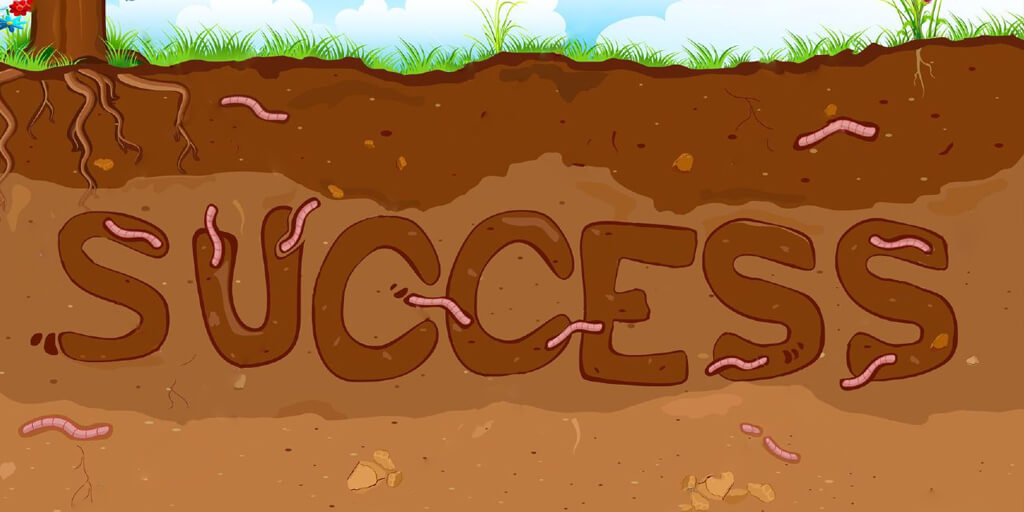A key component for the well-being of your seedling and plants is... the nature of the soil. The trick to a beautiful shrub, flower, or tree is not in adding fertilizers. On the contrary, soil quality depends on a lot of organic nutrients, such as manure or compost (read here the previous article on how you can compost simply, and even without having a garden). But that is not all there is! A lot of soil is not ideal for just growing any kind of plant. It needs to be amended or enriched to drain correctly, be less compacted and permit vital nutrients to reach the plants' roots. Compost is an optimal add-on as it helps lighten heavy soil and enrich poor ones. It is cost-effective since you can make it yourself, and at no additional cost.
Another soil supplement is mulch. While compost goes under the top layer of the soil, mulch is placed above that layer to reduce soil evaporation, regulate temperature and smother weeds. It is better to use organic mulch, like leaves or wood chips, as opposed to the inorganic versions such as geotextiles, because it decomposes and thus enriches the soil when doing so. I do not like industrialized landscaping solutions because they remove all the fun and excitement one experiences working issues out the way Nature would.
Furthermore, always make sure that your soil is not compacted. It has to be friable and loose. And allows good drainage. You don't want your roots to rot, right? Healthy soils contain earthworms, and their main job is to decompose organic matter and improve soil fertility. The larger the worms' colony, the healthier the soil is. Some soils might require adding sand. Not too much though. This is a fix that doesn't increase minerals or vitamins but it is important to regulate drainage.
It is equally essential to let your soil rest. Don't rush into working it. Let it dry after winter. And if you cannot perform a soil test to determine its pH, learn to observe how your flowers, plants, and trees are doing. Some crops, like blueberries, azaleas, and rhododendrons flourish in more acidic soils. I learned it the hard way: 3 years of my berries making beautiful leaves and not a single flower or fruit! Until I read about their need for a not-so alkaline base. This was confirmed by an expert and I started "fixing" that spot. Will keep you posted on how this experiment goes.
Finally, remember that Nature works at its own pace. Forget about chemicals and pesticides to take care of and boost your plants. There are plenty of environmental-friendly techniques that do not compromise the health of your soil. Or your plants. Just allow things to unfold, and abundance will just be around the corner! Happy Gardening!

